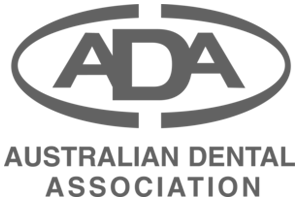What is the oral biome? Imagine a complex community of hundreds of bacterial species, fungi, and other microorganisms living as a bustling, microscopic city in your mouth. Far from merely influencing your smile, this intricate ecosystem plays a large role in your overall health and could impact how long you live. Recent Australian and international research is consistently highlighting the deep connection between your oral health and your systemic well-being.
The Systemic Connection
The balance of bacteria in your mouth can influence your risk to a range of serious chronic conditions. When the oral microbiome falls out of harmony – often due to poor hygiene, diet, or lifestyle – harmful bacteria can flourish. These pathogens and the inflammation they cause can then travel from your mouth into your bloodstream, affecting distant organs and systems.
Here is how an imbalanced oral microbiome, especially periodontitis has been linked to major health concerns:
- Cardiovascular Disease and Stroke: Oral bacteria their inflammation can enter the bloodstream, contributing to the build-up of fatty plaques in arteries. This condition is called atherosclerosis and it can lead to heart attacks and strokes. The Australian Heart Foundation acknowledges the link, noting that good oral health is part of maintaining good heart health
- Diabetes: The relationship between diabetes and oral health is a two-way street. Individuals with diabetes are more susceptible to gum disease. In turn, severe gum disease can make blood sugar control more challenging, thereby, complicating diabetes management. Diabetes Australia provides resources on this crucial connection
- Cancer: Emerging evidence suggests a link between certain oral bacteria, particularly those involved in periodontitis, and an increased risk for some cancers, including those of the digestive tract and potentially others. Chronic inflammation from oral infections is also thought to play a role

- Obesity: Imbalances in the oral microbiome have been associated with obesity and metabolic disorders. Certain oral bacteria can contribute to low-grade systemic inflammation, a key factor in these conditions. Research is exploring how changes in mouth bacteria could influence metabolism
- Alzheimer’s Disease and Cognitive Decline: The brain-mouth connection is a rapidly evolving area of research. Specific oral pathogens, like Porphyromonas gingivalis (a bacterium linked to gum disease), have been detected in the brains of Alzheimer’s patients. It’s theorised these bacteria or their toxins can contribute to neuroinflammation and cognitive decline
Keeping Your Teeth, Living Longer
Beyond preventing disease, maintaining a healthy set of natural teeth is increasingly linked to longevity. Studies suggest that individuals who retain more of their natural teeth into older age (e.g., 20 or more teeth at 70) tend to live longer. This is not just about appearance; it is intrinsically linked to better nutrition through efficient chewing, improved speech and enhanced social confidence which are vital components of healthy ageing.
Oral Care’s Rising Profile
The significance of the oral microbiome is gaining widespread recognition. Influencers like tech entrepreneur Bryan Johnson and neuroscientist Andrew Huberman champion rigorous oral care routines as a cornerstone of their longevity and overall health optimisation strategies. They highlight comprehensive approaches that extend beyond basic brushing.
This increasing awareness is also mirrored in the consumer products. The global oral and dental probiotics market is experiencing substantial growth as consumers seek products that support a healthy oral microbiome naturally. This trend reflects a shift towards preventive, holistic approaches to oral health.

Practical Steps for a Healthier You
Maintaining a balanced oral microbiome is a cornerstone of overall well-being. While the science behind it is complex, you can follow some easy steps:
- Maintain Consistent Oral Hygiene: Brush your teeth twice daily for two minutes with a fluoride toothpaste. Do not forget your tongue because it harbours many bacteria. The Australian Dental Association (ADA) provides comprehensive guidelines for effective brushing and flossing
- Daily Flossing/Interdental Cleaning: This is crucial for removing plaque and food particles from between teeth and under the gumline, areas a toothbrush cannot reach
- Balanced Diet: Limit sugary foods and highly processed items that feed harmful bacteria and promote tooth decay. Follow a diet rich in whole foods, fresh fruits and vegetables
- Stay Hydrated: Drink plenty of water throughout the day. Saliva helps to cleanse your mouth and neutralise harmful acids naturally
- Regular Dental Check-ups: Visit your dentist or dental hygienist once every six months. Your dentist and hygienist can remove stubborn plaque and tartar, detect early issues and provide personalised advice for maintaining your oral health and microbiome balance
By adopting a comprehensive approach to oral care, you are not just safeguarding your smile but making a critical investment in your long-term health, vitality and a longer, healthier life.
References:
- Heart Foundation – https://www.heartfoundation.org.au/
- Diabetes Australia – https://www.diabetesaustralia.com.au/
- Frontiers – https://www.frontiersin.org/journals/microbiology/articles/10.3389/fmicb.2025.1553404/full
- Institute for Functional Medicine – https://www.ifm.org/articles/oral-microbiome-and-brain-health
Want to book an appointment?
Book online by clicking here. Call our friendly team on 3390 6100 or email us.





















